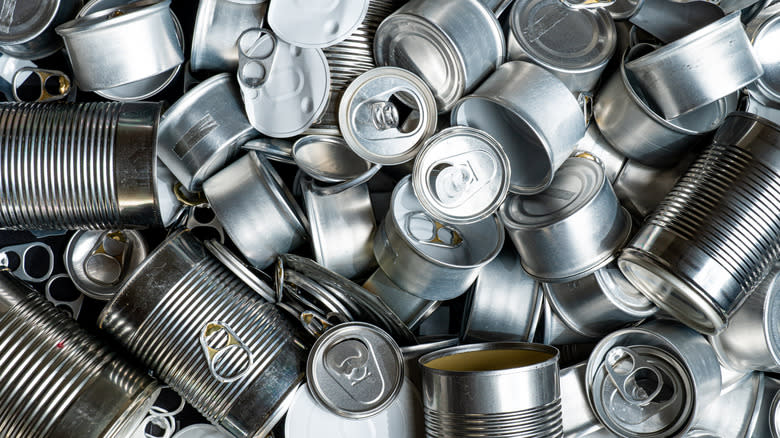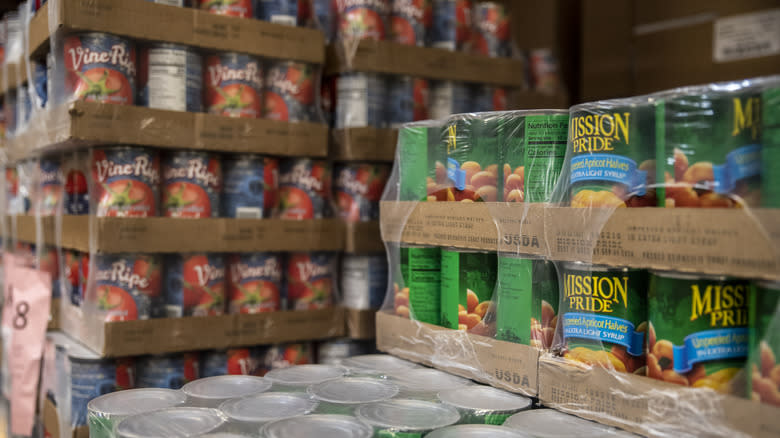The Science Behind Why Some Foods Are Canned In Tin Rather Than Aluminum

While fresh food is usually better than canned, people still stock up on canned foods in their pantries just because of how convenient and long-lasting they are. But, have you ever thought about what those cans are made of? They might all look shiny and similar, but there's more to them than meets the eye.
Food cans are typically made from either tin or aluminum. Tin cans, the traditional choice that's been around since 1810, don't actually mean the can is made entirely from tin. Tin is a rare material and accounts for just 0.001% of the Earth's crust in stark contrast to aluminum, which makes up a substantial 8.2%. The scarcity of tin makes true tin cans unsustainable.
In reality, tin cans are actually constructed from what's called "tinplate" — food-grade steel with a thin layer of tin applied to the surface. Steel is cheap, readily available, and easy to shape, making it an ideal material for can production. Meanwhile, tin, known for its exceptional resistance to corrosion, is used as a protective coating to prevent the cans from rotting away in storage. For all these reasons, tin cans are the go-to choice for canning, particularly for acidic foods. No other kind of canning materials can resist the acidity without rotting away in a month or two quite like tin cans.
Read more: 20 Popular Canned Soups, Ranked Worst To Best
If Tin Cans Are So Great, Where Do Aluminum Cans Fit In?

Tin cans have been around since the early 1800s, but it wasn't until nearly a century later that aluminum cans came into the picture. Before that, refining aluminum was challenging because it often exists alongside other elements in ores. Separating aluminum from these other metals was neither simple nor cost-effective, but as technology improved, aluminum became more accessible and, crucially, affordable by the late 20th century. Apart from being more cost-effective, aluminum cans are lighter, making them easier to transport. Furthermore, aluminum is highly eco-friendly due to its excellent recyclability, earning it the nickname "green metal" among environmentalists.
However, the main drawback of aluminum cans is that while they are relatively strong, they aren't as strong as tin cans, which benefit from being forged from steel. This is why aluminum is commonly used in applications where durability or long-term storability aren't a priority, like beverages and short-shelf-life foods. For long-term food storage, stronger and longer-lasting tin cans remain the preferred choice.
Read the original article on Tasting Table.

